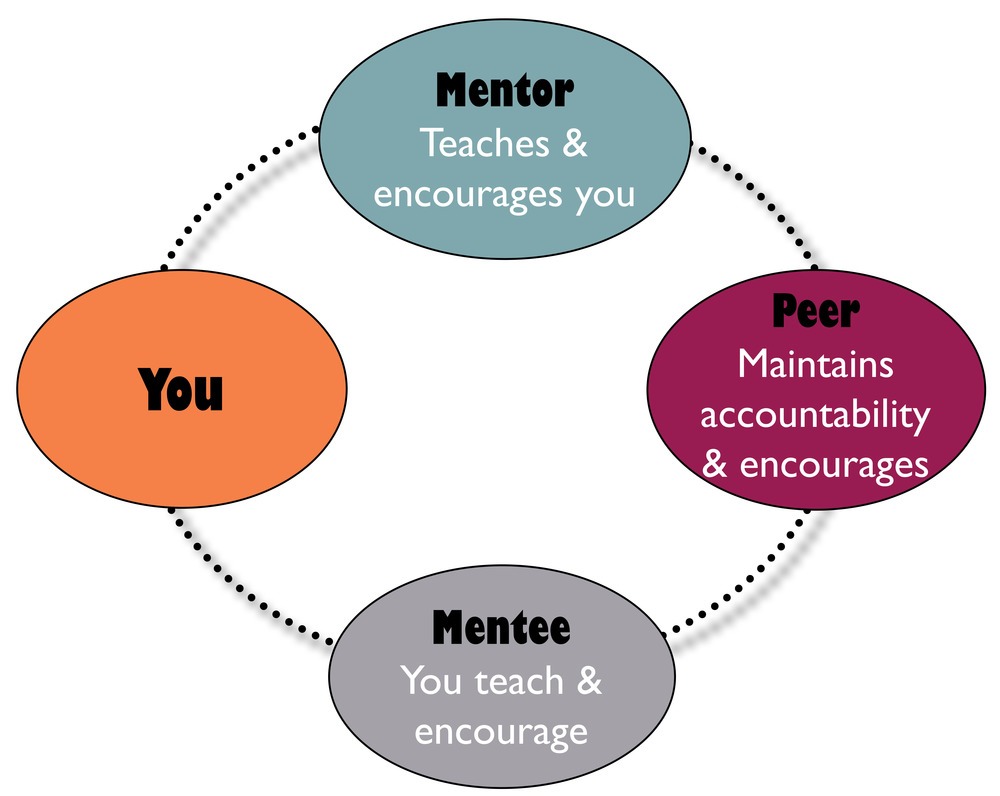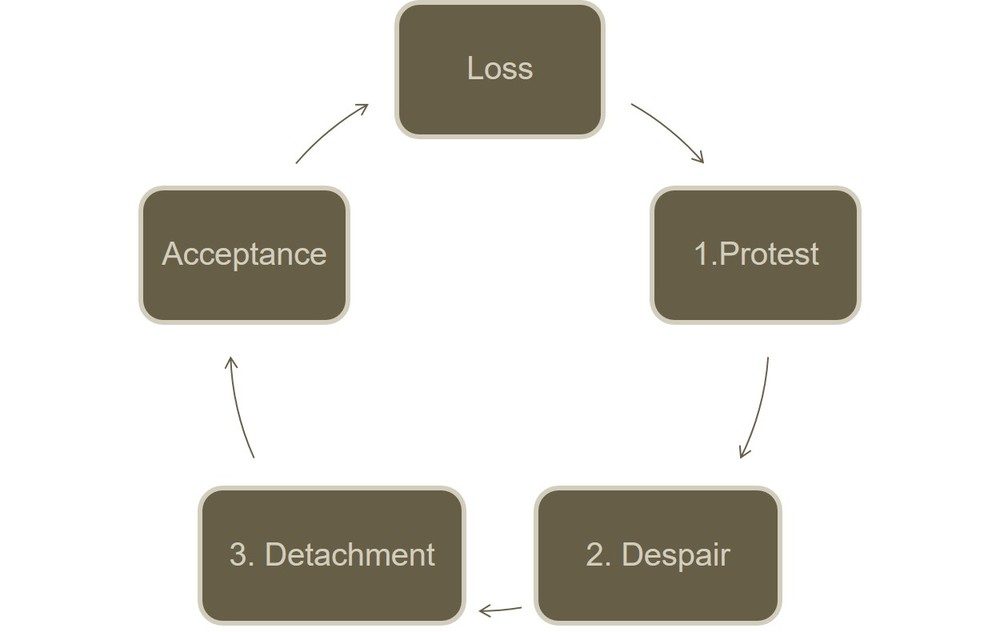Healthy Relationships In The Body of Christ
Jesus taught us much in the way we should interact with each other. He encouraged us to love others as we love ourselves and also serve each other whole-heartedly. The following are key thoughts taken from the ACCFS presentation Healthy Relationships in the Body of Christ.
The Mark of a Disciple
“A new commandment I give unto you, That ye love one another; as I have loved you, that ye also love one another. By this shall all men know that ye are my disciples, if ye have love one to another.” John 13:34-35
The Grace & Truth Lens
John 1:14 “And the Word was made flesh, and dwelt among us, (and we beheld his glory, the glory as of the only begotten of the Father,) full of grace and truth.”
John 1:17 “For the law was given by Moses, but grace and truth came by Jesus Christ.”
Grace: God’s unmerited love, favor, and strength. Truth: God’s holiness, perfection, and righteousness. Grace and Truth cannot be separated: a biblical concept of God contains both without violating the other. Grace without Truth isn’t Grace: It is license. Truth without Grace isn’t Truth: It is judgment and condemnation.
Concept 1: The Importance of Relationships
“So we, being many, are one body in Christ, and every one members one of another” Romans 12:5
Seek Key Relationships
An intergenerational Body of Believers gives the rare opportunity for the fullness of threefold relationships…
- Humility to learn from mentors.
- Transparency to be accountable to peers.
- Selflessness to spend time teaching and encouraging others.
See the natural, self-perpetuating progression of discipleship relationships:
- Paul (Discipler) Called by God to be an Apostle, discipled by Ananias/Barnabas. (Acts 9)
- Barnabas/Priscilla/Aquilla (Acct. Partners) In the same life stage/profession, lived and learned with Paul. (Acts 18)
- Apollos/Timothy (Disciples) Young, new Christians taken and discipled by Paul and Priscilla/Aquilla. (Acts 16, 18)
- Churches at Corinth/Ephesus Countless other Christians discipled by Apollos/Timothy, thus continuing the process.
Are We Members One of Another?
I Corinthians 12:26 “And whether one member suffer, all the members suffer with it; or one member be honoured, all the members rejoice with it.”
Deepen your relationships so that when (not if) you are struggling, others are close enough to notice and help. Allow yourselves to be members one of another (give permission):
- Identify the people in your support network.
- Seek counsel from others.
- Open up to others about certain issues in your life.
Be willing to help each other in practical ways when needed, not just “empty” words. (James 2:15-16)
Be authentic in your relationships: I Corinthians 12:25 “That there should be no schism in the body; but that the members should have the same care one for another.”
“Surface Community” occurs when the members of a group all relate to each other in a superficial way. Push yourself to “Get Past the Surface” by purposing within yourself to deepen your conversations with others. Satan loves for us to stay in the “shallow end”.
Try to have the type of caring community & family atmosphere where church is a place people feel like they can safely share their struggles.
Relationships build community and family through:
- Accountability – we are NOT designed to go through life isolated.
- Proverbs 27:17 “Iron sharpeneth iron; so a man sharpeneth the countenance of his friend.”
- Depth – there is strength in a conversion process surrounded by a community of loving relationships.
- Hebrews 10:24 “And let us consider one another to provoke unto love and to good works:”
- Counsel – things will always come up in our life for which we need counsel and support.
- Proverbs 15:22 “Without counsel purposes are disappointed: but in the multitude of counsellors they are established.”
Relationships open the door to advice, direction, or correction. We are more open to receiving these things if we have a relationship prior.
Concept 2: Pitfalls In Relationships
Watch out for your personal exclusivity.
- Luke 6:32, 35 “For if ye love them which love you, what thank have ye? For sinners also love those that love them…do good, and lend, hoping for nothing again;…
- Are we inviting others into our “family?”
- Are we giving to those who cannot give back?
Recognize we are designed to be different from each other…
- I Corinthians 12:18 “But now hath God set the members every one of them in the body, as it hath pleased him…But now are they many members, yet but one body.”
…Yet we are to be unified by Christ.
- Philippians 1:27 “Only let your conversation be as it becometh the gospel of Christ: that whether I come and see you, or else be absent, I may hear of your affairs, that ye stand fast in one spirit, with one mind striving together for the faith of the gospel.”
Differences can be troublesome. We are different from each other, and this can lead to disagreements in relationships. When there are differences, seek to maintain mutual respect and understand the type of difference in question.
- Difference #1: Preferences – Working Definition: Personal Opinions, Decisions, and Choices. Examples: your favorite food, color, or way to relax are all preferences. Two individuals may agree or disagree about each other’s preferences, but neither is wrong. When Differences Occur: Agree to disagree.
- Difference #2: House Rules – Working Definition: Rules of conduct established by families or groups of closely-related people. Examples: How to educate children; curfew times for teens, family traditions. When Differences Occur: Live according to your conscience before God AND respect that others may choose differently.
- Difference #3: Organizational Norms – Working Definition: Standards of conduct, behavior, dress, and participation/non-participation in activities established by businesses, churches, and social/service organizations. Examples: Policies, practices, and procedures put in place by an organization. When Difference Occur: Respect authority, be submissive, and appeal biblically.
- Difference #4: Biblical/Moral Absolutes –Working Definition: God’s moral law that is explicitly stated in the Bible as either command or principle. True for all people, in all places, at all times. Example: Exodus 20:14 “Thou shalt not commit adultery” is a biblical absolute. Adultery is sin in God’s eyes – period. When Differences Occur: Don’t compromise.


Watch for key warning signs in relationships: 
- Pride vs. Humility: Is it about you or God?
- Comparison: We are not called to be “the best” or do “the most” …we are called to be faithful.
- “…they measuring themselves by themselves, and comparing themselves among themselves, are not wise.” 2 Cor. 10:12
- Infighting: Gossip destroys trust. Don’t let Satan take advantage of the closeness of the Body.
- Respect of persons (cliques)
Avoid Emotional Perfectionism
Remember Christ died for your imperfections and His grace is what makes you whole. Perfectionism is sometimes an attempt to gain the unattainable goal of never being wrong or never needing help from others. Unfortunately, perfectionism is a trap that leads to feelings of failure and beliefs that one does not measure up or deserve compassion. Perfectionism is sometimes mistaken for spiritual devotion. Unfortunately, perfectionism is harmful, not helpful to our spiritual lives. We are complete in Christ, not in ourselves.
Avoid Favoritism
It is OK, even good, to recognize people have different strengths and weaknesses. Be careful not to show favoritism. Jacob was favored by Rebekah: had to flee to escape Esau’s wrath. (Genesis 27) Joseph was favored by Jacob: sold into slavery by his brothers. (Genesis 37) Absalom was not disciplined by David: destroyed the kingdom and eventually died. (2 Samuel 13-18)
James 2:9 “But if ye have respect to persons, ye commit sin, and are convinced [convicted] of the law as transgressors.”
Work on Forgiveness
Don’t let Satan have an advantage/foothold with you by allowing lack of forgiveness to poison your life. (Ephesians 4:26-27) Past problems with communication can cause us to give up on future communication. When communicating, stay focused on the present conversation. Don’t bring in other issues and past arguments. If you haven’t been able to work through a relationship problem with someone, seek counsel. Use mentors and accountability to work through these situations…be diligent! Don’t hold forgiveness hostage.
Ephesians 4:32 “And be ye kind one to another, tenderhearted, forgiving one another, even as God for Christ’s sake hath forgiven you.”
Practice Forbearance
Definition: “To put up with someone.” Under times of stress people can become irritable, rigid, and even irrational. Avoid taking things too personally. Take comments people say and let them “roll off.” Suggested prayer – “Father forgive them, for they know not what they just said.”
Colossians 3:12-14 “Put on therefore, as the elect of God, holy and beloved, bowels of mercies, kindness, humbleness of mind, meekness, longsuffering; Forbearing one another, and forgiving one another, if any man have a quarrel against any: even as Christ forgave you, so also do ye. And above all these things put on charity, which is the bond of perfectness.”
Concept 3: Working Together Through Struggles
The Word tells us to expect struggles.
1 Peter 5:8-9 “Be sober, be vigilant; because your adversary the devil, as a roaring lion, walketh about, seeking whom he may devour: Whom resist stedfast in the faith, knowing that the same afflictions are accomplished in your brethren that are in the world.”
2 Timothy 3:12 “Yea, and all that will live godly in Christ Jesus shall suffer persecution.”
How do we view these struggles? Accept everyone struggles at one time or another…. even good Christians! Avoid the mindset that struggle is automatically a sign of a spiritual weakness. Avoid the extremes of:
- Denial (“We don’t have any problems.”)
- Catastrophizing (“Everything, everywhere is bad and falling apart.”)
Different Types of Losses
- Physical/Acknowledged losses (Death of a loved one)
- Unacknowledged/Symbolic losses (Loss of expected or anticipated outcome & loss of dreams)
3 Phases of Grief after Loss or Perceived Loss
1.Protest
-
-
- Shock, confusion, denial, anger at others, anger at self, anger at God, lowered self-esteem.
- Crying, pain, weakness, nausea, loss of appetite, sleep disturbance, etc.
-
2.Despair
-
-
- Agony, grief, anguish, depression.
- Bargaining, “urge to recover” that which was lost, slowed thinking and actions, continuing physical symptoms.
-
3.Detachment
-
-
- Apathy, indifference, loss of interest, desire to withdraw and “give up”.
- Decreased socialization, no new friendships, bland expression, absent spontaneity.
-
Listening IS Doing Something
Sometimes a listening ear is all another person needs. They don’t need you to come up with a solution. Proverbs 18:13 “He that answereth a matter before he heareth it, it is folly and shame unto him.” Active listening takes effort. “Reflect back” what you heard the person say. Listening is a gift you give to others.
Don’t Underestimate the Importance of the “Ministry of Presence”
“Being there” is often the most important thing you can do for someone who is struggling. We often feel powerless to fix situations that occur in life. This is often because there is either no good solution to the problem or the solution is out of our control. Remember: most often people won’t remember what we say, however, they will remember how we made them feel.
Show Empathy
Step #1: Set Aside Your Own Agenda (temporarily) “I notice you.”
Step #2: Turn on Your Emotional Radar “I feel with you.”
Step #3: Demonstrate Your Care and Concern “I act to help you.”
Timing is Everything- Be Sensitive to the Spirit
As human beings we like to make sense of life experiences; that is normal and natural…but it can be overdone. Use Scripture in context and with appropriate timing. You want the person you are trying to support to be able to hear and internalize your support. For example: Romans 8:28 “And we know that all things work together for good to them that love God, to them who are the called according to his purpose.” – is a powerful verse of comfort. However, if you use it at an inappropriate time, it can lead to misunderstandings about God and can cause a struggling person to feel invalidated and hurt.
Understanding When & How to Help
Meet others at their level. Romans 12:15 “Rejoice with them that do rejoice, and weep with them that weep.” What is your first response when you see someone crying? What is your first response when you see someone who is excited about something? Seek to Understand where the other person is at…
God Redeems Our Hurts for A Purpose
Those who have gone through a struggle have an opportunity to reach out to others who are struggling.
2 Corinthians 1:3-6 “Blessed be God, even the Father of our Lord Jesus Christ, the Father of mercies, and the God of all comfort; Who comforteth us in all our tribulation, that we may be able to comfort them which are in any trouble, by the comfort wherewith we ourselves are comforted of God. For as the sufferings of Christ abound in us, so our consolation also aboundeth by Christ. And whether we be afflicted, it is for your consolation and salvation, which is effectual in the enduring of the same sufferings which we also suffer: or whether we be comforted, it is for your consolation and salvation.”
Concept 4: Encouragements In Relationships
Are you doing your part?
Shift the focus off of yourself and onto serving others. What are you doing to serve today? Remember, our natural tendency is not to serve! Ministry should stretch us into “deeper water.” Ask yourself: “Am I being part of the solution or am I simply pointing out what I think isn’t working right?” It is easy to criticize! Think of this quote: “Denouncing evil is a far cry from doing good.”
Diffusion of Responsibility
Assuming it is someone else’s job to get something done. Don’t assume visitors or those new to church understand the order of events, where they should go, or why certain things happen. Don’t assume it is someone else’s job to go up to visitors to make them feel welcome.
Differing Responsibilities & Ministries
Be careful when trying to fit others’ actions into your “box.” We are designed to fill different needs within the Body. Our seasons of life have different ministries. Be thankful for all who do their part…especially behind the scenes. Engage your family when possible.
Realize You are One Part of the Solution…Not the Solution
1 Corinthians 3:6-9 “I have planted, Apollos watered; but God gave the increase. So then neither is he that planteth any thing, neither he that watereth; but God that giveth the increase. Now he that planteth and he that watereth are one: and every man shall receive his own reward according to his own labour. For we are labourers together with God: ye are God’s husbandry, ye are God’s building.”
John 4:37-38 “And herein is that saying true, One soweth, and another reapeth. I sent you to reap that whereon ye bestowed no labour: other men laboured, and ye are entered into their labours.”
Boundaries
Boundaries are critical to maintain focus. They are also known as limits. Emotionally, boundaries separate what is your responsibility from what is not. Boundaries are built – they are not inborn. Boundaries are designed to let the good in and keep the bad out. If you do not maintain your boundaries, they will erode.
Types of Boundaries:
-
-
- Loose Boundaries: Chalk lines
- Rigid Boundaries: Concrete block walls
- Healthy Boundaries: Fence with a gate door
-
Saying “No” to Good Things is Hard…
-
-
- One of the biggest problems for Christians.
- Burnout, lack of desire, resentment, and other problems can result if we don’t limit activities – even good ones!
-
…However, You Need to be Realistic.
-
-
- What do you have control over?
- Use this stem: The reality is….
-
The Circle of Concern & Circle of Influence
Circle of Concern represents 100% of the things which concern you in life.
Circle of Influence (~10% of Circle of Concern) represents the portion of your concerns you can actually do something about right now.
Many people spend 90% of their time in the 90% they cannot control. This leads to stress, anxiety, feeling out of control, difficulty letting go. The goal is to spend 90% of your time in the 10% you can influence.
Step Back…Get Perspective
Remember each of us needs time to step back, relax, and regain perspective. Many times, depression, anxiety, and stress-related illnesses result because people forget to take care of basic things in their lives. Mark 6:31 “Come ye yourselves apart into a desert place, and rest a while:” Getting burned-out can lead you to have less compassion for others. “Sometimes the good things in life can be the worst enemies of the best things in life.”
Ecclesiastes 10:10 “If the iron be blunt, and he do not whet the edge, then must he put to more strength: but wisdom is profitable to direct.”
The Result of Healthy Relationships:
Ephesians 4:16 “From whom the whole body fitly joined together and compacted by that which every joint supplieth, according to the effectual working in the measure of every part, maketh increase of the body unto the edifying of itself in love.”
To view the complete PDF, click here.





Comments
1 Comment
I believe and have found development of good relationship with the Lord and others in the Body of Christ also helps to develop our Character. Being a family member in good standing, being trustworthy and submitted to each other with confidence is the best fruit you could ever have. Then gifts and callings can come later on from there IF good relationships and good character are confidently well established in place.
Leave a Comment